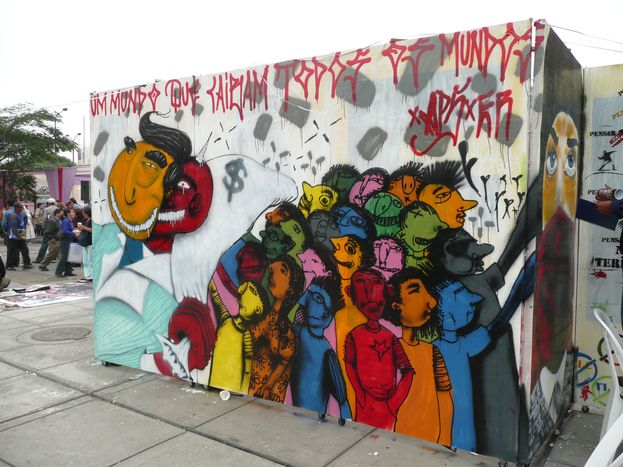
Over to the EU-Latin America summit in Peru
Published on
Translation by:
Nabeelah ShabbirEU member states juggle with the socialist and capitalist faces of Latin America at the EU-LAC summit in Lima on 16 – 17 May 2008, and the Peruvians speak
In preparation for fifty EU and Latin American heads of state who are attending the fifth EU-Latin American and Caribbean summit between 16 - 17 May, the Peruvian capital has been fitted out with a security plan, including 95, 000 soldiers. The fight against poverty and sustainable development are top of the list for the EU-LAC summit at Lima’s National Library. Meanwhile, Peruvian civil society, indigenous organisations, NGOs and European and American trade unions are participating in an alternative ‘People’s Summit’, taking place at the public National University of Engineering from 13 – 16 May.
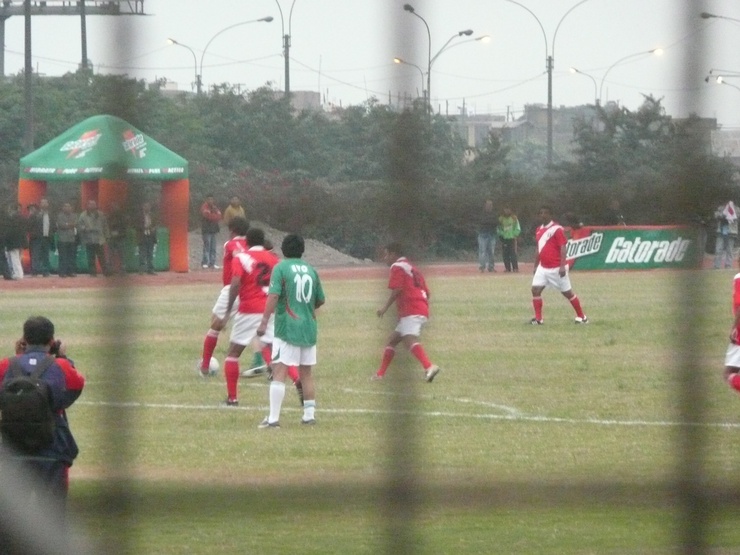
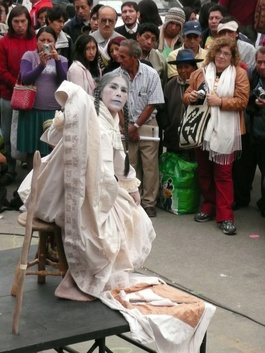 Europe’s biggest challenge is to know how to address the two distinct Latin Americas of today : the ‘capitalist’ one defined by Mexico or Brasil, and the ‘ socialist’ one represented by Cuba, Bolivia and Venezuela. The latter’s controversial president Hugo Chavez's leftist ideas are defined by an anti-American policy, hostile to the market economy, making him central in various polemics. On 12 May he said Angela Merkel was ‘from the German right, the same that supported Hitler, that supported fascism, that's the chancellor of Germany today.’ He has also been accused of an alliance with FARC, the Colombian Marxist guerrilla rebels (Revolutionary Armed Forces of Colombia).
Europe’s biggest challenge is to know how to address the two distinct Latin Americas of today : the ‘capitalist’ one defined by Mexico or Brasil, and the ‘ socialist’ one represented by Cuba, Bolivia and Venezuela. The latter’s controversial president Hugo Chavez's leftist ideas are defined by an anti-American policy, hostile to the market economy, making him central in various polemics. On 12 May he said Angela Merkel was ‘from the German right, the same that supported Hitler, that supported fascism, that's the chancellor of Germany today.’ He has also been accused of an alliance with FARC, the Colombian Marxist guerrilla rebels (Revolutionary Armed Forces of Colombia).
The summit will be marked by the current political context and international economy. Debate will follow topics such as the liberation of Franco-Colombian hostage Ingrid Betancourt from the FARC, as well as the idea of a ‘global partnership for food and agriculture,’ as French president Nicolas Sarkozy recently proposed. He won’t be in Lima, like British prime minster Gordon Brown. UN figures suggest fifty million people suffer from malnutrition in Latin America today.
by Olivier Lopez in Brussels
Peruvians speak
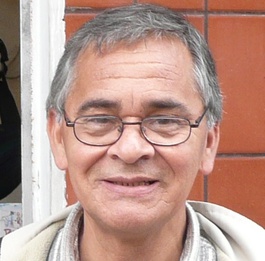 ‘It’s important they achieve their goals. They meet every year but poverty is on the increase’
‘It’s important they achieve their goals. They meet every year but poverty is on the increase’
Alfredo, Peruvian, 61, at the Calle General Garzón, Jesus Mariadistrict
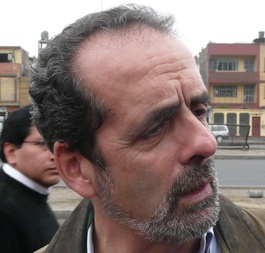 ‘It’s an ‘apartheid’ summit surrounded by police and soldiers. The alternative summit was dismissed, discouraging citizens. Commercial agreements compromise our agriculture, tributary reform and the distribution of wealth. Our EU commercial agreement is as damaging as our US free commerce treaty. Respect our labour rights’
‘It’s an ‘apartheid’ summit surrounded by police and soldiers. The alternative summit was dismissed, discouraging citizens. Commercial agreements compromise our agriculture, tributary reform and the distribution of wealth. Our EU commercial agreement is as damaging as our US free commerce treaty. Respect our labour rights’
Socialist Javier Diez Canseco, 60, former presidential candidate and a co-founder of the Partido Democrático Descentralista (PDD)
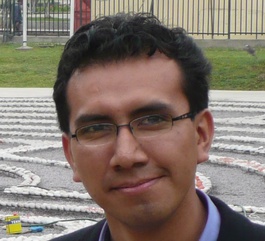 ‘It’s useful so long as it doesn’t just end up an expensive cocktail and reaches its goals’
‘It’s useful so long as it doesn’t just end up an expensive cocktail and reaches its goals’
Julio, Peruvian, 26, lawyer, by the 'Ojo que llora'memorial by artist Lika Mutal
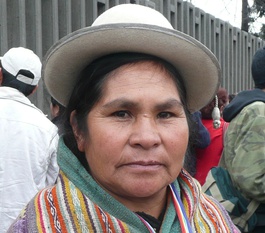 ‘I want an original summit. We don’t want to be led by an oligarchy of landowners. We want a change in every country; there is a lot of arrogance which harms us’
‘I want an original summit. We don’t want to be led by an oligarchy of landowners. We want a change in every country; there is a lot of arrogance which harms us’
Toribia Choque, Bolivian, 54, representative of the Consejo de Ayllus del Qollasuyo – Bolivia (CONAMAQ), in the Los Ulivos district
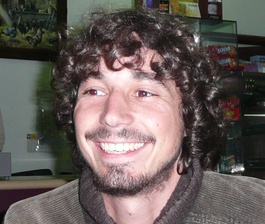 ‘I don’t want to see it as completely negative. It’s essential we speak more about the environment and human rights. European countries can’t lecture us either, they have the same issues and their governments don’t promote equitable trade’
‘I don’t want to see it as completely negative. It’s essential we speak more about the environment and human rights. European countries can’t lecture us either, they have the same issues and their governments don’t promote equitable trade’
Mickael , French, 23, student/ volunteer in Lima at the National University of Engineering
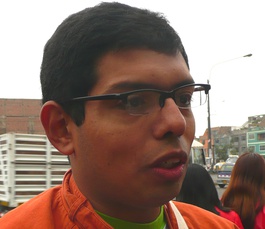 ‘Strengthening our countries contributes to understanding social problems, which people dismiss in Peru. The alternative summit lets us listen to independent movements’
‘Strengthening our countries contributes to understanding social problems, which people dismiss in Peru. The alternative summit lets us listen to independent movements’
David, Peruvian, 24, journalist, Los Ulivos district
By Paola Bon and Julio Corcuera Portugal in Lima
Translated from Sommet : Chavez entre deux chaises



